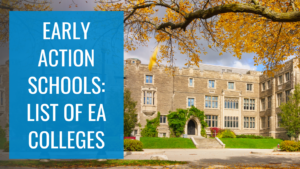
Students often hear the word “research”, but not necessarily know what it means. They often hear it in the context of ‘do your research’ which means to go explore and learn more about it. Scientifically published works are often referenced in ways that are more authoritative, as it is referred to by other scholars; giving the phrase ‘according to research’ greater credence. The context in which high schoolers hear the word “research” is in the increasingly popular suggestion that ‘they need to gain research experience’.
If you’re a high school student or a parent of one, you may be wondering what on earth does that mean? Is a Research Program going to help your college application? If so, why?
In the context of a highly competitive admissions process, especially to the top U.S colleges and universities, research experience can help to tip the scale in your favor. Since the top universities are Research 1 universities, whereby they receive substantial governmental and non-governmental funding to support the research enterprise of faculty, they strongly encourage undergraduate students to actively participate in research. Fulfilling this need is vital to the research function of the university. However, landing a research opportunity is not easy. This is where being academically talented and highly motivated comes in handy.
To get into the research track, start doing research in high school. Summer times are best to spend 6-8 weeks being fully immersed in the research process. Mind you, research does not only refer to the sciences but also applies to the humanities and social sciences. At the very least, what you will gain is an introduction and orientation to research. Whether coding qualitative data or documenting procedural methods, the experience will signal to the admissions office your proclivity to research. Thereby, leading to a potential nomination and selection of your candidacy for the coveted Presidential Research Scholars (CPRS), like the one at Cornell University.
Doing research, locally at a nearby college or university can be very rewarding for many reasons, all of which are intended to benefit you educationally. It will introduce you to the research process that often begins with an inquiry/question, followed by the development of a hypothesis or a hunch, articulation of methodologies, data collection process, discussion of findings and implication of research. To be able to think critically about why research matters will enable you to see how you can meaningfully contribute to new scientific discoveries that perhaps may ignite a fire in you to aspire to become a researcher and a scholar.

All of our blog posts are written by Former College Admission Officers who serve as members of our admission consultant team.

